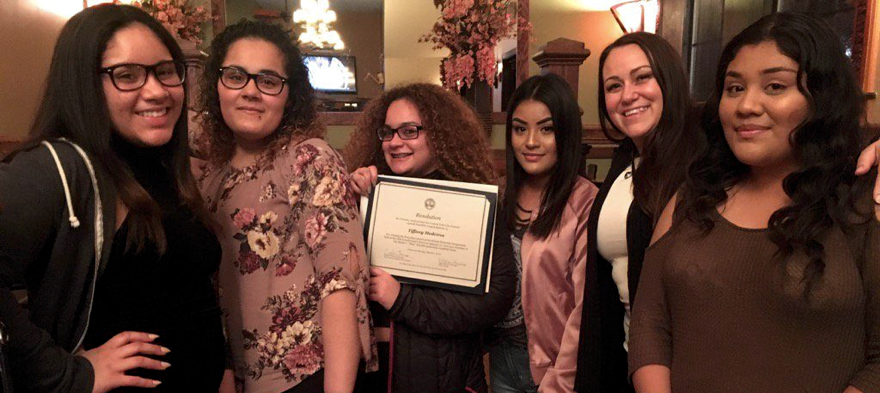
Oct 10, 2019 12:00:00 AM
I remember the day like it was yesterday. The year was 2013 and I was in the oval office with President Obama to receive an award for excellence in teaching. I was there as the 2013 RI Teacher of the Year to represent the teachers in my state and to honor the hard work they do every day. I loved teaching. I loved my students and I was unwavering in my belief in their potential to achieve and do great things.
I don’t ever remember actually using the term “high expectations.” I just taught them in the most engaging way I could. Sure, they had emotional needs—huge needs, actually. But I refused to let those needs get in the way of the priority of learning. My students made huge strides and graduated ready to take college-level science courses.
[pullquote]There is a fine but very important line between removing barriers for students and coddling them, between supporting students and enabling them.[/pullquote] As a high school drop-out myself, I have seen and lived this first hand. And after getting my GED, graduating from college and earning a master’s, one thing is crystal clear: education is what broke the cycle for me. And I am 100% convinced that education the only thing that will break the cycle for my students.
There are days when every pull-out room in a given school has a student inside—headaches, breakups, problems with fellow students, stomach aches. Many would applaud the support the students receive from staff and peers on those difficult days. But the truth is, it almost brings me to tears. My own students, perhaps more than most others, need to be advancing academically while we also support them through challenges and pain. But it has to be both/and because either/or can destroy their futures.
At the age of sixteen, I lived alone in an apartment that didn’t have a single appliance. My church generously donated a stove and a refrigerator, and I was grateful for their kindness. But the truth is, that kindness by my church had little to no impact on where I am today. I got here by learning to read, write, problem solve and advocate.
Learning must be our priority as educators and [pullquote]we need to take a hard look at our practices of removing barriers to ensure we aren’t making the common mistake of enabling students rather than supporting them.[/pullquote] Wrap-around services are critical but not when they wrap so tight that they squeeze out the educational part of the equation.
Low expectations often hide in good deeds. We don’t mean to do it, but it happens. My students, most of whom are pregnant and/or parenting teens, face challenges that neither they nor I will ever be able to solve no matter how long we talk it through or how many times I call them a cab in the morning, find them a place to stay or pay their utility bill. I don’t mean to imply that all of those supports aren’t important. They are. But none of them can come before or in place of educating them and getting them ready for college.
[pullquote position="right"]I believe in my students and I know that they can and will reach the bar if we set it high and keep it there.[/pullquote] For many students, the greatest gift we will ever be able to give them is our belief in them.
A high school diploma is not the end-game and we do our students an enormous disservice if we treat it as such. It is the starting point. If we graduate students before they are ready, it is they who will be held hostage by illiteracy, ill-preparedness and low wage jobs. Our responsibility lies in helping them to break the chains of generational poverty. Shame on us if, with the best of intentions, we end up perpetuating it.
Jessica Waters is a mother of three, former Rhode Island Teacher of the Year and current director of academics at Nowell Leadership Academy.
Few issues in education spark more tension and debate than standardized testing. Are they a tool for equity or a burden on students? A necessary check on school systems or a flawed measure of...
Charter schools are public schools with a purpose. Operating independently from traditional school districts, they're tuition-free, open to all students, and publicly funded—but with more flexibility...
Despite the benefits of a diverse teaching force, prospective teachers of color fall out of our leaky preparation pipeline at every stage: preparation, hiring, induction, and retention. Here’s what...
Ed Post is the flagship website platform of brightbeam, a 501(c3) network of education activists and influencers demanding a better education and a brighter future for every child.
© 2020-2025 brightbeam. All rights reserved.
Leave a Comment